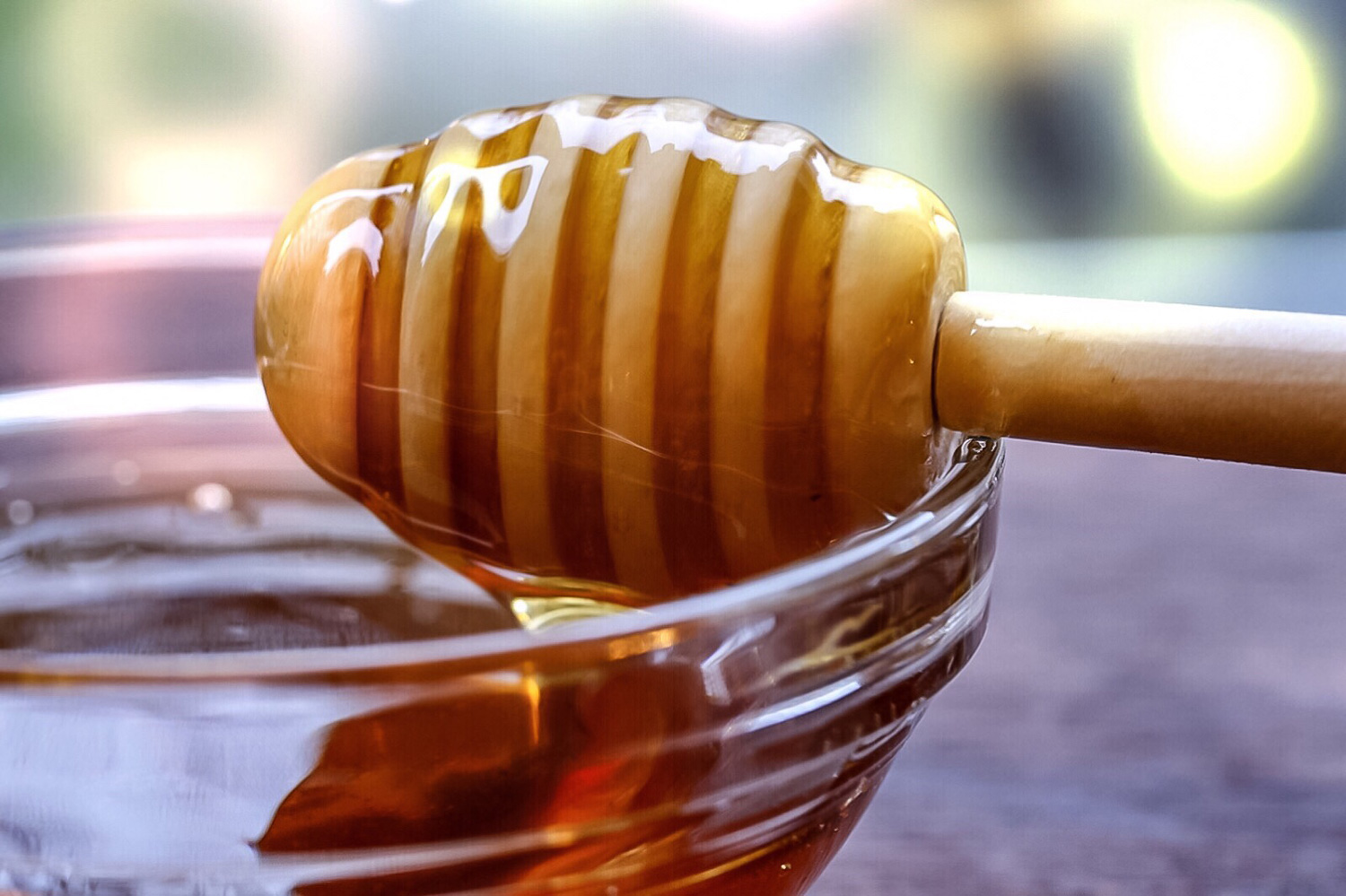Honey has been a part of the human diet for generations. In fact, Aristotle himself spoke of its beneficial properties and ancient cave paintings depict honey being harvested by humans thousands of years ago. It’s one of Mother Nature’s most prized sweet treats and often gets lauded as a healthy sweetener. But it’s certainly no free pass when it comes to calories, so it’s important to know drawbacks as well as the benefits of eating honey before you make any changes to your diet.
The key warning with honey — or myth that needs to be dispelled — is that honey, especially raw honey is clearly better than refined white sugar. The fact is, while honey offers many benefits and advantages over refined or artificial sweeteners, it’s got the same fructose and glucose content as regular white sugar. Thus, both have the same negative impact on blood sugar, and those who struggle to keep their blood sugar levels within a healthy range should avoid honey just as they avoid sugar. And if you’re trying to lose weight, honey contains more calories per teaspoon than white sugar, so it’s not going to help lower your BMI, either.
Types of Honey
According to the National Honey Board, “there are more than 300 unique types of honey available in the United States alone, each originating from a different floral source (i.e., honey is usually named after the plant source used by the bees to collect the nectar used to make the honey). Their shades range from nearly colorless to dark brown, while flavors go from subtle to bold; even the aroma of honey may be reminiscent of the flower. As a general rule, the flavor of light-colored honeys is milder, and the flavor of darker-colored honey is stronger.”
Three hundred varieties! Honey, it seems, may be a lot like red wine — you’re going to have to sample a few to figure out which one most pleases your palate. While we can’t possibly cover all 300, we can introduce you to the top favorites you should easily be able to find online or at any good health food store.
- Clover Honey
Clover honey is among the most popular and widely available forms of store-bought honey. It usually comes from either Canada or New Zealand, where bees produce the honey mostly from clover nectar. It’s almost always light in color and has a nice mild, delicate flavor that makes it an excellent honey for baking. - Manuka Honey
Manuka honey is produced from New Zealand bees that frequent the Manuka tree. It’s one of the most revered forms of natural honey because of its topical health benefits. Some research has looked into its wound soothing capabilities, as it has been found to provide antibacterial properties that can help fight off infection. Manuka honey may not become your favorite tasting honey, but it’s health benefits are hard to beat. - Wildflower Honey
“Wildflower” honey is kind of the catch-all raw honey variety. Its flavor and color will depend entirely on the flowers in bloom at the time the honey is collected. Check the label or with the manufacturer of the honey to see where it was sourced and bottled to give you an idea of what to expect. - Buckwheat Honey
You guessed it… buckwheat honey comes from honey bees that collect nectar from buckwheat flowers, which creates a darker honey with a more molasses-like flavor. Buckwheat honey is not as sweet as a typical jar of wildflower honey, but it does have a higher concentration of beneficial macronutrients, trace elements and antioxidants.
Is Honey Good for You?
Unlike plain white sugar, honey is a sweetener that does offer a few health benefits. But before we dive into the honey health benefits, there’s one danger of honey that needs to be addressed.
Along with its delicate sweet flavor, honey contains a lot of natural microorganisms, including one specific bacteria called clostridium. For adults, this bacterium poses no threat because our immune systems are mature and the amount contained in the honey is quite small. For infants and children under the age of one, however, this bacterium does pose a significant risk and can lead to infant botulism if consumed. So, parents and grandparents, keep honey out of reach of young children and slowly introduce it into their diets only after their first birthday.
Benefits of Honey
Honey, being a sugar, is a quick source of energy. Also, honey, especially raw honey, contains a blend of vitamins, minerals, enzymes, antioxidants, and phytonutrients, primarily from bee pollen and bee propolis. Bee pollen, which comes from the pollen collected by bees, and bee propolis, which is a resin-like substance bees gather from trees, can be sources of vitamins, minerals, fatty acids, proteins, carotenoids and bioflavonoids. Plus, If you’re interested in alkaline food choices, raw honey is alkaline forming unlike processed honey which is acid forming.
Common uses of honey include it being used as a sweetener for hot tea or beverages for wellness and sleep, plus as an ingredient in health and beauty recipes.
For more benefits of raw honey, read Raw Honey vs Refined "Regular" Honey and 10 Ways to Sweeten Your Beauty Routine with Honey.

About Lindsey Toth, MS, RD
Registered Dietitian, Swanson Health Products
Lindsey is a nationally recognized registered dietitian and nutritionist with a soft spot for ice cream. She empowers people to take charge of their health by finding the balance between the pleasure and nourishment in food.
Her philosophy is that you should take care of your body because it’s the only permanent home you have. It’s what inspired her to pursue a career in nutrition and, ultimately, led her to Swanson Health Products.
Sources
National Honey Board: Honey Varietals. https://honey.com/about-honey/honey-varietals (Accessed 11/13/2017)
WebMD: Medicinal Uses of Honey. https://www.webmd.com/diet/features/medicinal-uses-of-honey#1 (Accessed 11/13/2017)
*These statements have not been evaluated by the Food and Drug Administration. These products are not intended to diagnose, treat, cure or prevent any disease.



